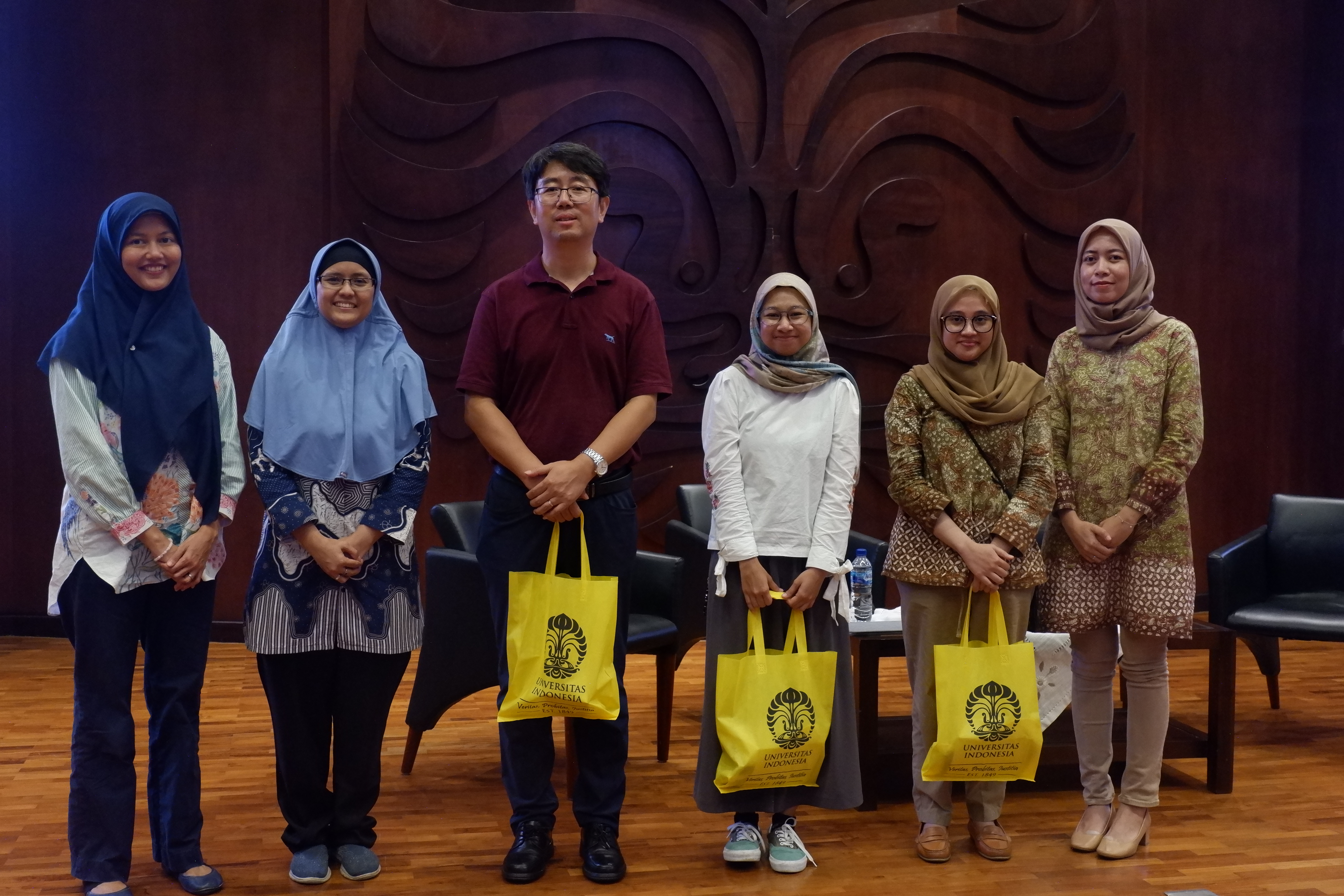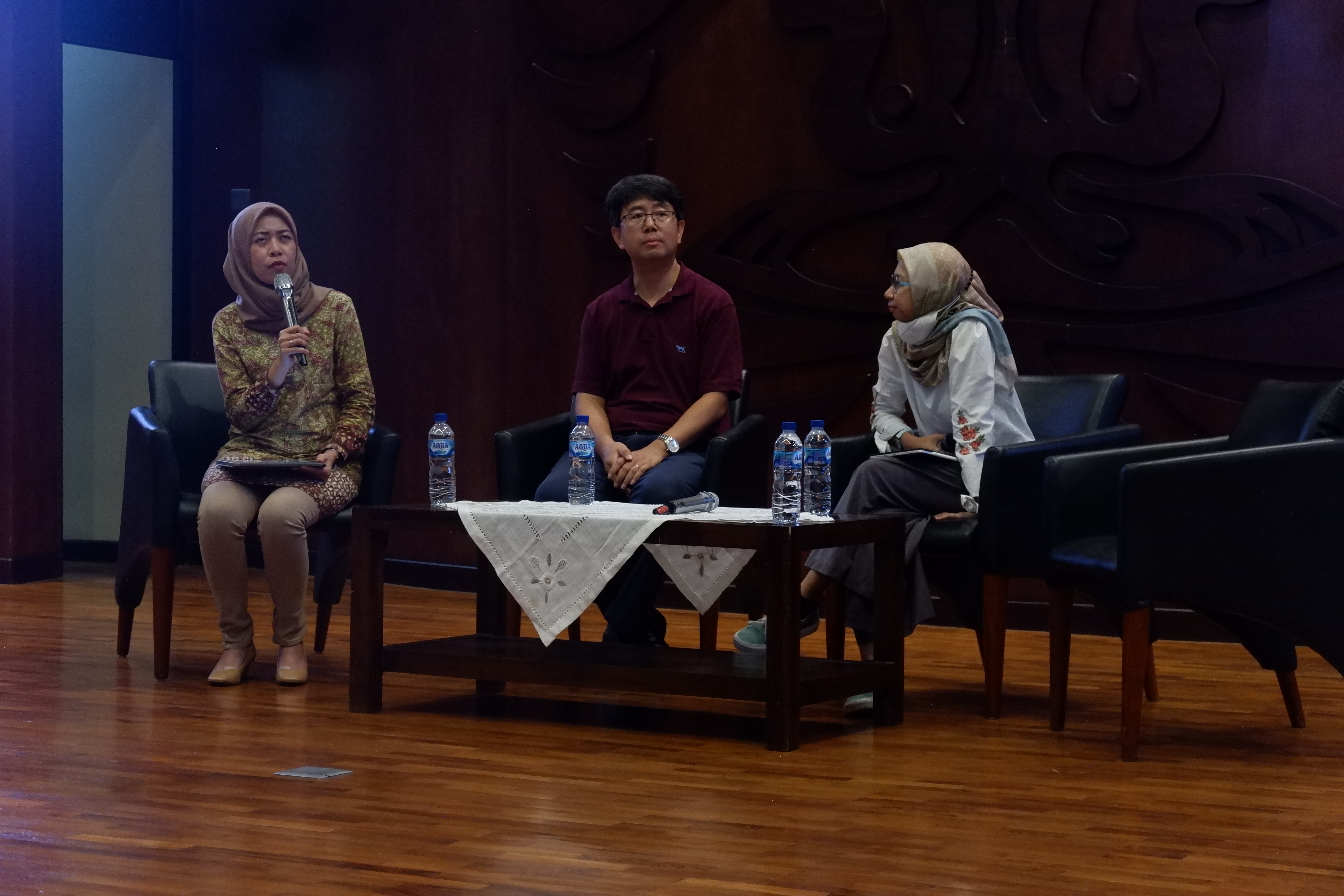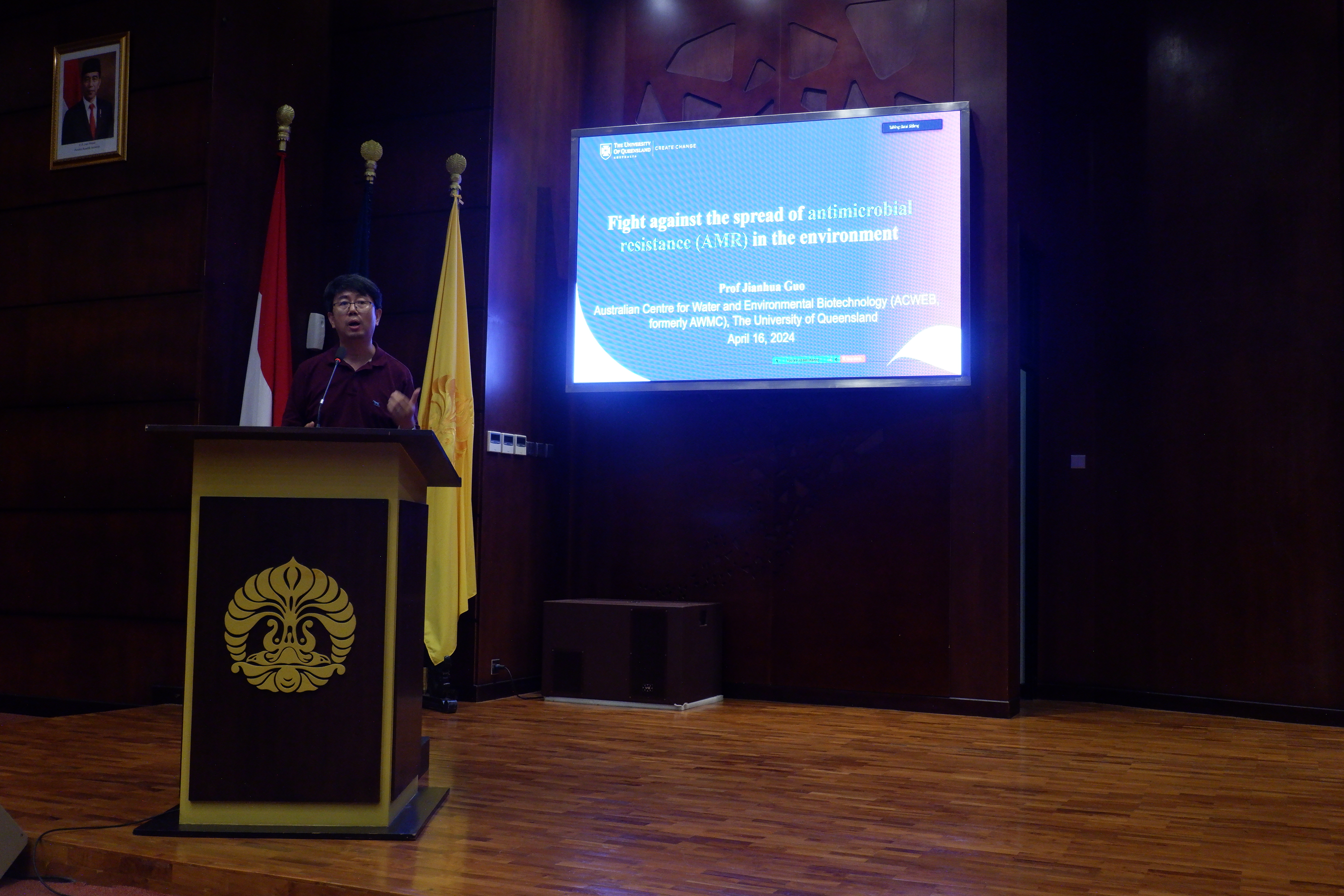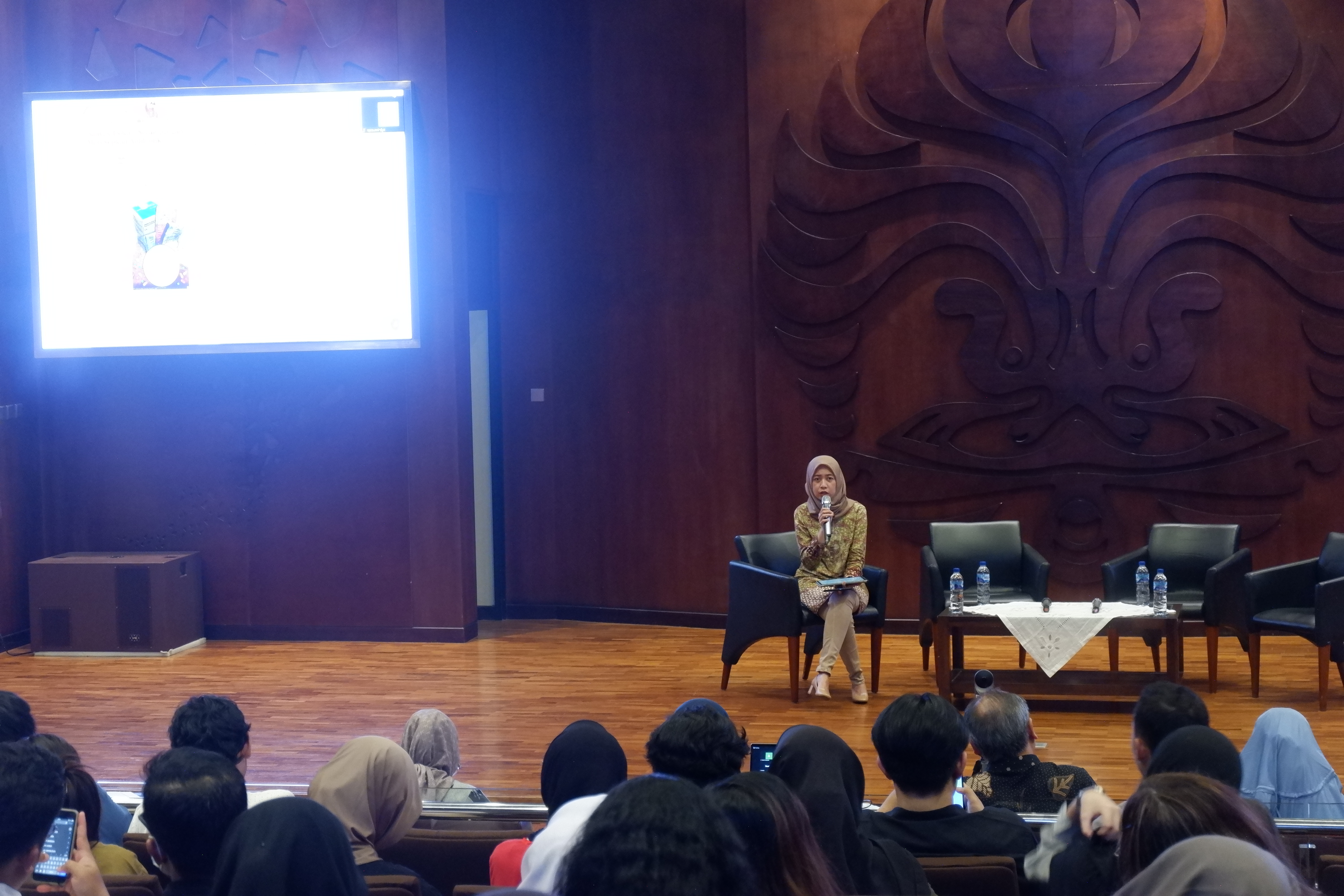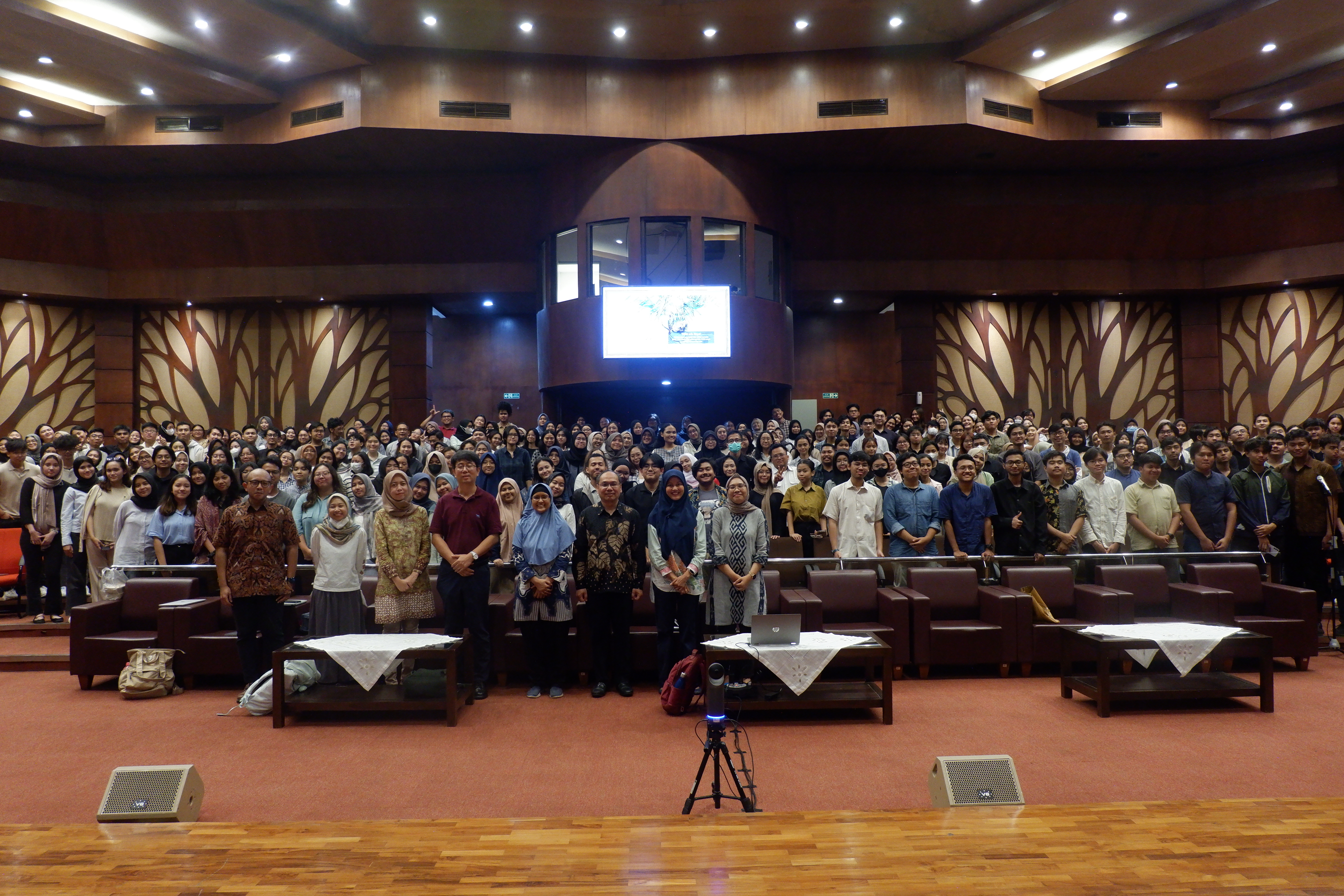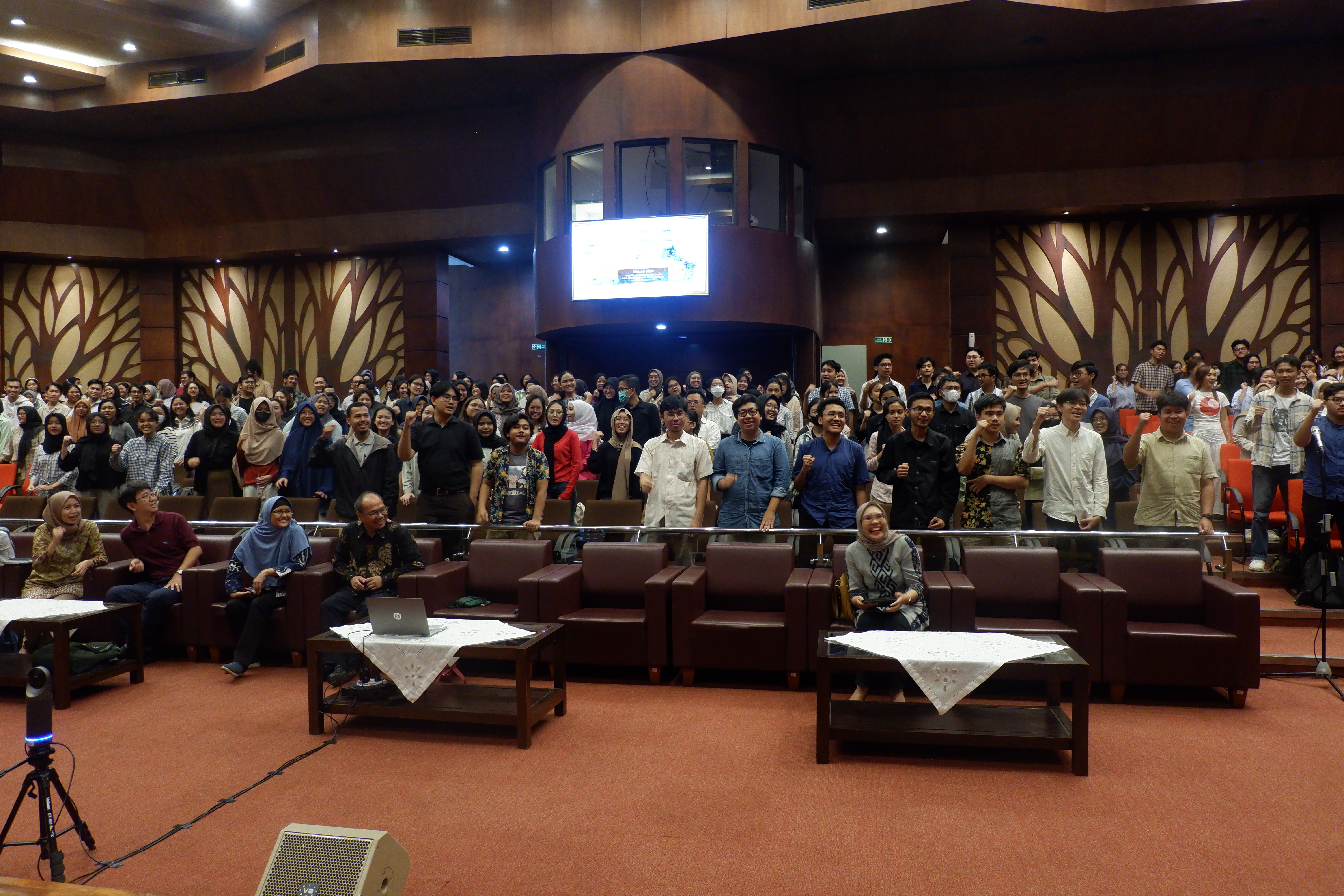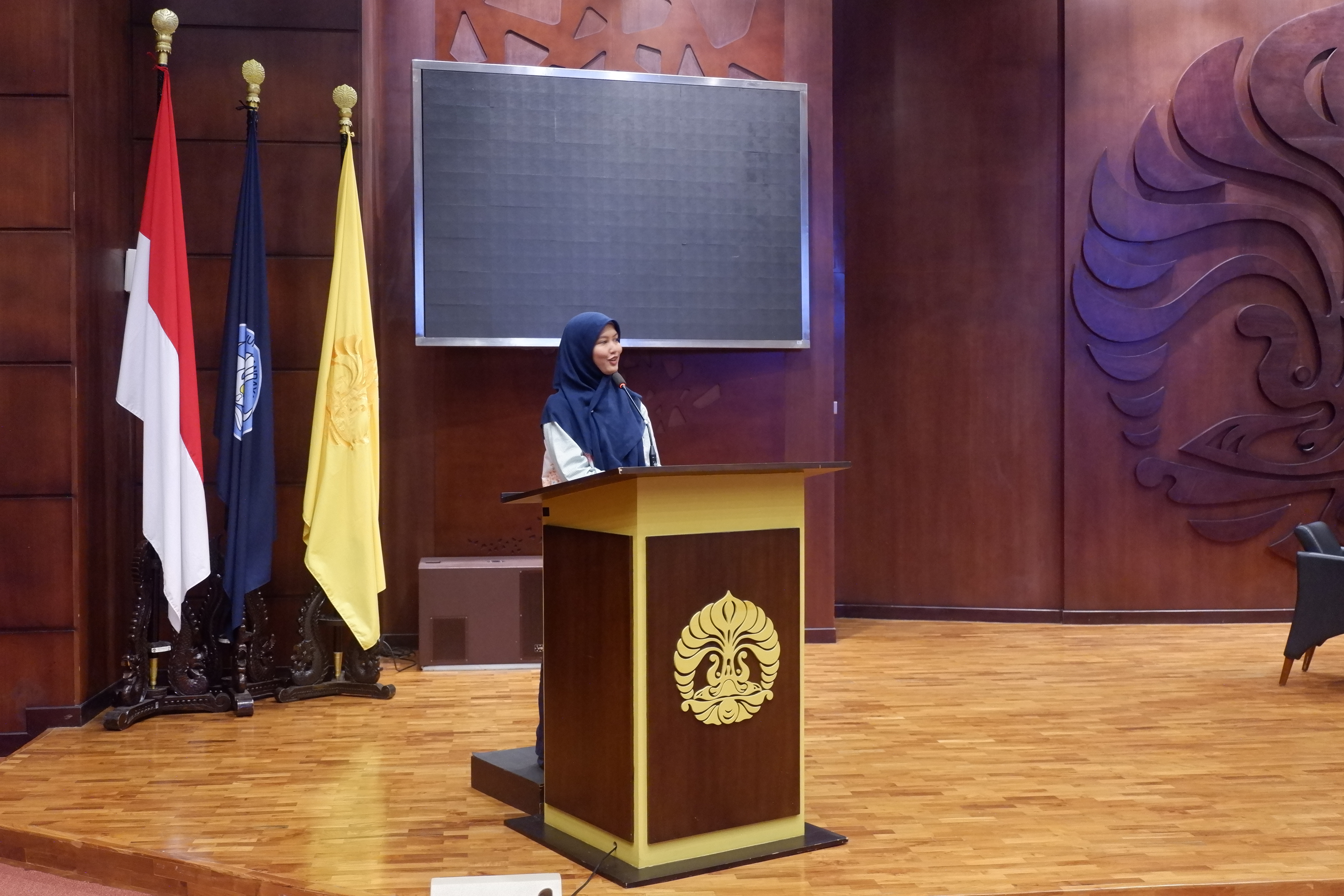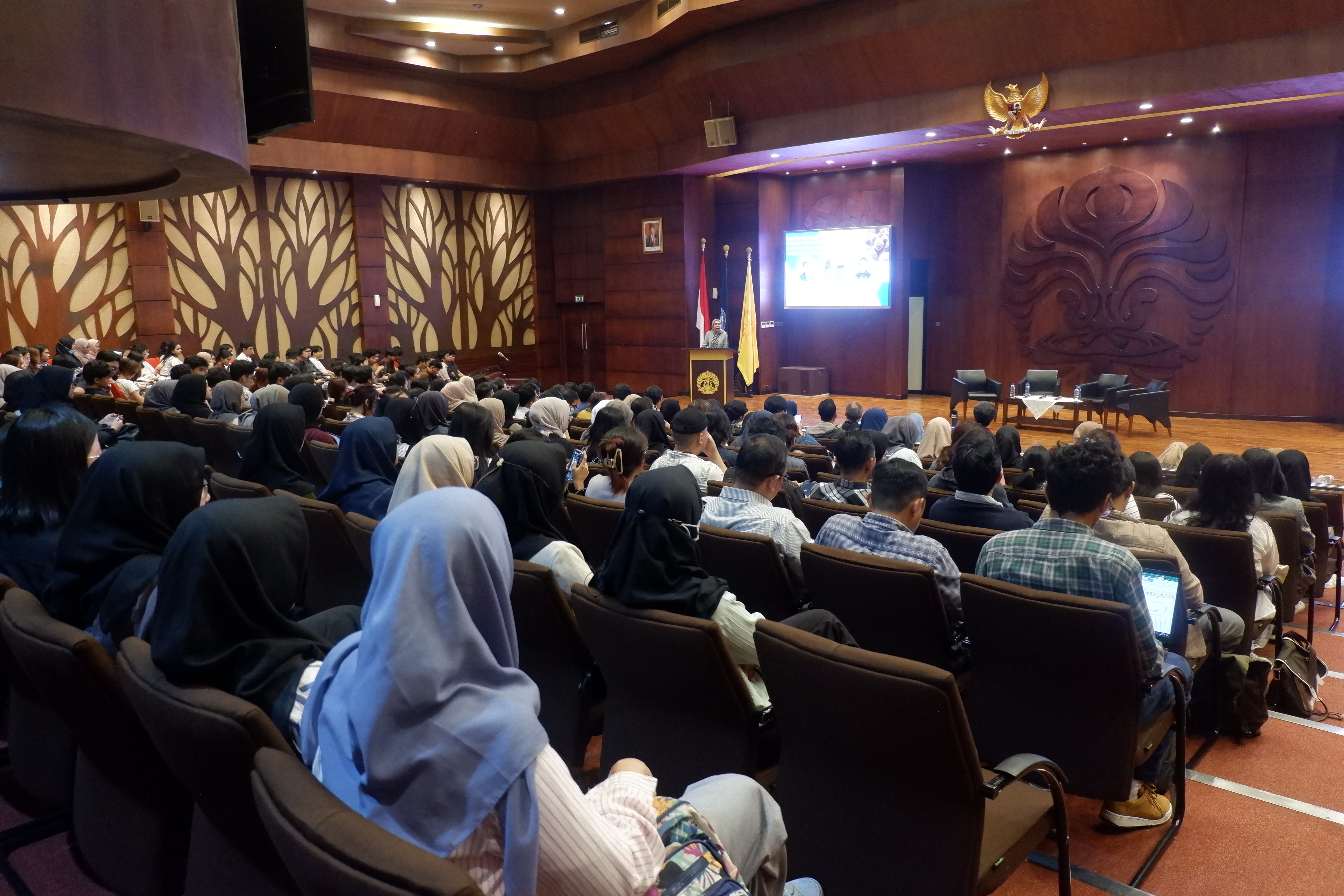Antimicrobial resistance (AMR) has become a hot topic of discussion leading up to Eid this year. National media outlets like Kompas have also highlighted this issue in their newspapers. This indicates that Indonesia is slowly beginning to pay attention to AMR.
In response to this, FTUI held a public lecture titled “Integrating Wastewater Treatment Plants within a One Health Framework to Address Antimicrobial Resistance.” The event took place on April 16, 2024, at the Universitas Indonesia Convention Hall and was broadcast via Zoom. There were three speakers, namely Prof. Jianhua Guo from the Australian Centre for Water and Environment Technology at the University of Queensland; Mitria Widianingtias, S.T., M.Eng., a PTSL 2011 alumni and representative from the Ministry of Public Works and Public Housing; and Iftita Rahmatika, S.T., M.Eng., Ph.D., a lecturer in the Environmental Engineering study program at FTUI.
“Through this public lecture, we at FTUI are committed to producing graduates who care about the environment. Hopefully, the presentations provided can give students a deep understanding of the environmental conditions and strategies to realize Indonesia’s progress,” said Dr. Nyoman Suwartha, S.T., M.T., M.Agr., Education Manager, during his opening speech.
In his presentation, Prof. Guo stated, “AMR is the resistance of microorganisms to antimicrobial agents, such as antibiotics and antifungals. AMR is a global challenge for human and ecosystem health. It can spread through humans, animals, and the environment. Therefore, it must be addressed with a One Health approach.”
Mitria explained the government’s role in addressing AMR. She said, “The Indonesian government is aware of AMR. We also use the One Health approach. Additionally, there is a national action plan against AMR for the period 2020–2024. Some of the action plans include increasing awareness and understanding of AMR, improving scientific knowledge, and enhancing integrated governance.”
The next presentation was delivered by Iftita. She said, “We detected ESBL E. coli in two rivers affected by domestic behaviour. The spread of ESBL E. coli is highly supported by wastewater. I hope surveillance in Indonesia can be improved, and the Ministry of Environment can be more involved in the national action against AMR.”
On a different occasion, the Dean of FTUI, Prof. Dr. Ir. Heri Hermansyah, ST., M.Eng., IPU., said, “For the past three semesters, we have been trying to hold public lectures on topics relevant to current environmental conditions. This shows that FTUI is opening its eyes to issues affecting society. I hope this public lecture can inspire students to address AMR.”
***
Office of Public Communication
Faculty of Engineering Universitas Indonesia

